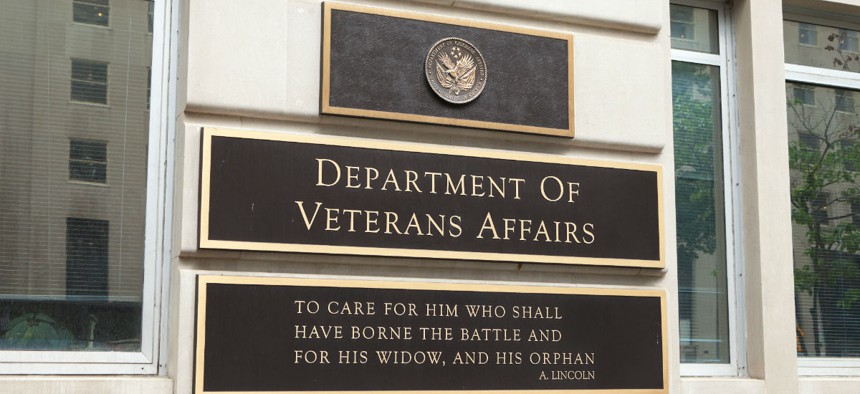VA Is a Safety Net For Many Vets, Study Finds
Veterans in 2010 were more reliant on government health care and other benefits than vets surveyed in 2001.
Veterans are an older and more diverse group than they were 15 years ago, and they are also much more dependent on the health care and other benefits provided by the Veterans Affairs Department, according to a new study.
The VA “continues to be a health care safety net for many veterans,” concluded a study published in the June 2016 issue of Health Affairs Journal, based on two surveys of vets conducted in 2001 and in 2010. Vets in 2010 were twice as likely as vets in 2001 to have used VA health services, the study found; the 2010 group also were more likely to have applied for VA disability compensation and to have received higher ratings, despite being less likely to have served in a combat zone than those vets surveyed in 2001.
The greater reliance on VA services and benefits in the post-9/11 era could partly be due to better technology and VA outreach, the study authors said. But they also found that more VA service users in 2010 had lower incomes, were in poorer health and were more likely to be unemployed than those in 2001, indicating a greater need for a safety net among that population, particularly following the 2008 recession and the passage of the 2010 Affordable Care Act. VA health coverage fulfills that law’s health insurance mandate.
There are roughly 20 million vets now, fewer than in 2001, and VA provides benefits and services to between 15 percent and 26 percent of that group each year. The numbers and demographics of the population are fluid though, given the aging veteran population, increase in female service members and the growing racial diversity of the armed services. That means their needs and expectations are changing as well.
For instance, the number of vets using VA mental health services alone jumped from just over 700,000 in 2001 to more than 1.2 million in 2010, according to the study.
“This increase may be due to collective efforts by the VA, the Department of Defense, and community-based providers to engage veterans in VA health care and improve their access to mental health services,” the study's authors, Jack Tsai and Robert Rosenheck said, adding that their results did not support the wide public perception that “post-traumatic stress is a problem among recent veterans especially.”
The study underscores the importance of the VA system to a growing, aging and possibly at-risk population at a time of turmoil for the department. VA continues to struggle with the rise in disability compensation claims and appeals, as well as providing timely and quality health care to vets. Then there are the systemic problems it faces in managing its 300,000-plus workforce. As if that weren’t enough, a new threat looms: multiple calls from Capitol Hill and elsewhere to completely privatize the VA’s health care system.
“The VA faces new opportunities and challenges in developing and allocating resources for a changing population of veterans in the next decade,” the study concluded, in the understatement of the year about the government’s second-largest department.








